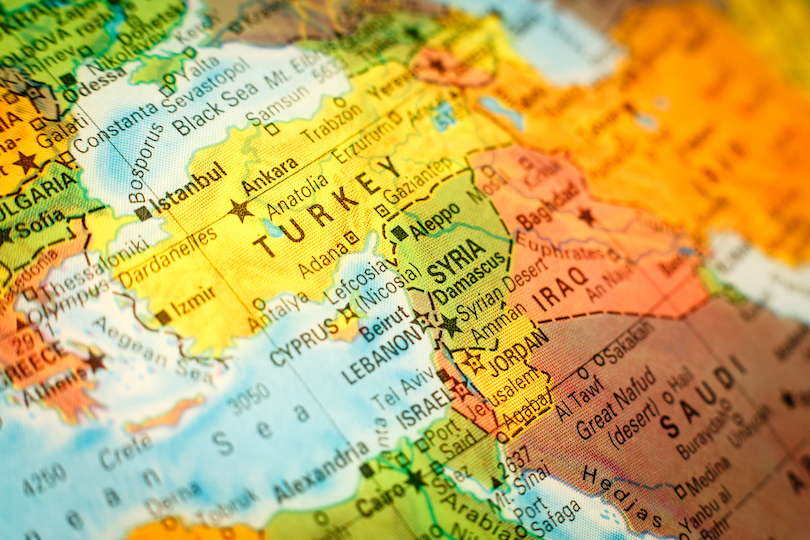Mostafa Najafi told the Strategic Council on Foreign Relations that it is likely that Turkish President Rajab Tayyip Erdogan would meet Syrian President Bashar al-Assad considering the recent statement by Erdogan.
“In the past year, several meetings were held between officials of the foreign policy apparatus, as well as several meetings between the security and intelligence officials of Turkey and Syria, in order to reduce the large volume of differences between the two countries, and what Erdogan proposed regarding the possibility of meeting with Assad is a step forward. It is considered forward and in line with the normalization of relations between these two countries”.
He stated that after the Sochi meeting and especially after the Tehran summit and the tripartite meeting between the presidents of Russia, Turkey and Iran, Erdogan came to the conclusion that he cannot impose his preferences on Syria from the military side, adding that with encouragement and emphasis Iran and Russia, Turkey moved towards normalizing the relations between Damascus and Ankara and solving the differences between them politically, so despite the many rhetoric of the Turkish authorities, especially Erdogan, they could not carry out an operation in northern Syria.
Referring to some changes in Turkey’s foreign policy in the past two years, including the reduction of tension in relations with Saudi Arabia, Egypt, Jordan, and the Zionist regime, this analyst of Syrian issues said that this change of approach in relation to Syria can also be seen in the format of the macro approach of this country.
“In addition, next year’s elections in Turkey are very important for Erdogan; In particular, we should keep in mind that his opponents in Turkey are trying very hard to remove him from power, and in addition, Western countries, especially the United States, are extremely dissatisfied with him and are trying to use the current opportunity and take advantage of the economic dissatisfaction and unprecedented inflation in Turkey will weaken or subdue Erdogan. “
Najafi considered the economic issues and trade relations between Turkey and Syria to be very important for the two countries and said that Turkey is Syria’s biggest trading partner and more than a third of Syria’s foreign trade volume is Turkey’s share. In fact, more than 30 percent of Syria’s imports are made from Turkey, and about 30 percent of Syria’s exports are also made to Turkey. This is while Iran has only three percent of the Syrian economy. Therefore, the normalization of relations has many economic benefits for Turkey and Syria and is a mutual desire.
He added that Syria is now under US “Caesar” sanctions and these sanctions have created many obstacles for the government in international trade relations. Turkey has shown that it always uses the opportunities related to the sanctions and tries to show itself as a gateway to circumvent the sanctions for countries. This approach has created many benefits for them.
Stating that Bashar al-Assad is looking for economic recovery and reconstruction of his country, this analyst of Syrian issues reminded that Damascus, apart from its neighbors, faces many restrictions for trade relations. For this reason, Turkey is a suitable option for Syria’s foreign trade and can provide capacities to Syria.
According to Najafi, of course, the preparation of the meeting between Assad and Erdogan has many complications and does not happen easily. There are many obstacles regarding the normalization of relations between the two countries. The issue of Idlib remains unresolved and terrorist and opposition groups supported by Turkey are still present in Idlib. Turkey has not shown any flexibility in this regard. In addition, part of the Turkish military is also present in northern Syria. Until these issues are resolved, the relationship between the two countries will not return to normal conditions.
This expert on Syrian issues continued that even if these issues are resolved, a long-term process must be completed so that these two countries can return their relations to before 2011. However, the signs indicate that the two sides are trying to move in this direction by maintaining their principled policies and, at the same time, softening some of their red lines, because both countries need these relations.
He called the role of Iran and Russia important in the normalization of relations between Damascus and Ankara and said that although we are on a path where we can have optimism, we must not forget that in the current situation, Turkey’s foreign policy is very fluid and more tactical than a principled, defined and sustainable foreign policy; So there are still hurdles to overcome.
Regarding the possibility of changing Turkey’s policy towards Syria, stopping the bombings and creating a buffer zone with Syria, in exchange for normalizing relations, Najafi emphasized that despite the visible and hidden rivalries and differences with some actors such as the UAE, Egypt, Jordan and Saudi Arabia, Ankara Due to economic issues and international pressures, it has gone in the direction of reducing tensions. However, Turkey will definitely not back down easily regarding the “Kurds” issue, and this issue has made the normalization of relations more complicated and its solution requires mechanisms.
Stating that the Astana process can solve the issues between Turkey and Syria politically, he added that Erdogan is trying to resolve the Syrian issue before the upcoming elections, and the Russians are also trying for various reasons, including the war in Ukraine. And the need they have for Turkey, they are interested in solving this issue as soon as possible. In any case, Syrian issues are one of the challenges of Turkish-Russian relations.
Stating that Ankara has come to the conclusion that it should solve the Kurdish issue politically, Najafi said that if Turkey wants to take military action in northern Syria, it will face many challenges on the eve of the elections. In this situation, Erdogan considers political negotiations to be the best solution so that Syrian refugees and migrants living in Turkey can return to their country.










0 Comments